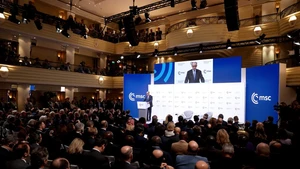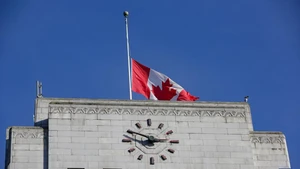Thanks to a decline in wholesale energy prices along with the easing of supply chain bottlenecks, inflation in the Eurozone is starting to cool down. Consumer prices in Germany - Europe's leading economy fell slightly in November 2022, from the previous month, mainly thanks to lower oil prices, said the German Federal Statistics Office. According to preliminary data from the Office, the inflation rate in Germany in November stood at 10%, after touching 10.4% in October, the highest level since 1951. This is the first time inflation has fallen and according to experts, Germany may have passed the peak of inflation.
Positive data has just been released, raising hopes that inflation in the Eurozone has peaked and the possibility that the European Central Bank (ECB) will reduce interest rates. With the inflation rate falling, economists said, it is likely that the ECB will only raise interest rates by 0.5 percentage points, when the Bank's Board of Governors is scheduled to meet on December 15, after two consecutive interest rate hikes, with 0.75 percentage points. However, inflation is still higher than the 2% target, so the ECB still needs to raise rates sharply even if inflation declines, to avoid damage from the spiral of rising prices.
The Eurozone has been under pressure from inflation and economic activities in November continued to decline, but the pace of decline has slowed. According to new S&P Global data, the Eurozone’s Purchasing Managers’ Index (PMI) rose from 47.3 in October to 47.8 in November. However, the index remains below 50, showing economic activities fell for the fifth consecutive month. Meanwhile, inflation in most member economies remained high. However, S&P assessed that the inflation pressure on businesses is easing and the business confidence index is starting to increase.
According to analysts, based on the new data, it can be believed that the Eurozone’s GDP decline in the fourth quarter will be lower than the 0.5% predicted. However, the signs of improvement are still weak, showing that the inflation problem is unlikely to be resolved anytime soon.
The European Union (EU) has warned that the Eurozone may fall into recession this winter, in the context of inflation, it is expected to increase due to high energy prices. According to the European Commission (EC), uncertainty and rising costs could push the Eurozone and most EU member economies into recession in the final quarter of 2022.
S&P Chief Business Economist Chris Williamson warned that the drop in business activity in November, further highlighted the risk of the Eurozone economy entering a recession. However, this economist assessed that the supply pressure is showing many signs of cooling down, in which the performance of suppliers in the production centre of the bloc which is Germany, has shown signs of improvement. Supply to businesses improved, but the German economy still posted the strongest decline, with a November PMI of 46.4. The Eurozone’s next big economy, France, showed signs of better performance, but output still fell in November, marking the first month of decline since February 2021.
In the context of too many uncertain factors that can affect the Eurozone, experts said that the European economy continues to face the risk of recession. Positive signs have been rekindled, but the Old Continent’s economy continues to be under high inflation pressure and economic activity has not prospered.
















